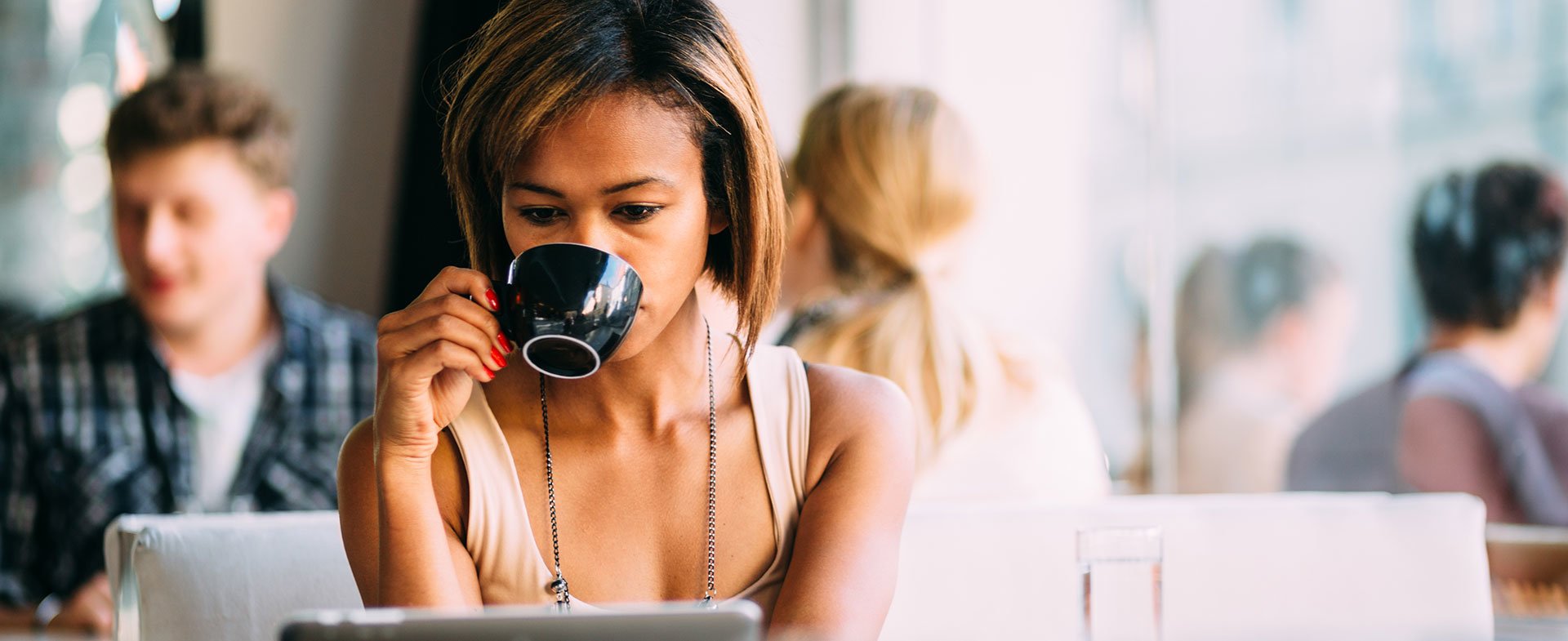There’s nothing worse than trying to turn in for the day and not being able to sleep. But while you’re lying there tossing and turning, have you ever considered that your afternoon cup o’ Joe might be the cause of your problems?
The link between how much caffeine you eat or drink and sleep issues is undeniable. The closer to bedtime you have caffeine, the harder it will be for you to go to sleep – that’s a no brainer. But did you know that your afternoon coffee run with coworkers could be causing problems for you, as well?
A good rule of thumb is: If you want to be asleep by 11 p.m., you shouldn’t have any caffeine past 5 p.m. Depending on the amount of caffeine you’ve had, sleep could be affected anywhere from four to six hours later – even longer depending on the strength of that caffeine boost. Here are some other facts you should know:
- Decaf isn’t decaf. There are still trace amounts of caffeine in decaf coffee and tea. It’s not a large amount, but if you drink several cups of it, it adds up.
- Coffee isn’t the worst culprit. Sorry, tea drinkers, but there are some teas out there that contain more caffeine than coffee! Try herbal tea if you need a caffeine-free alternative.
- There’s caffeinated everything. It’s not just coffee, tea and energy drinks that contain a pick-me-up. These days, anything, including gum and soap (yes, soap!), can be jam-packed with caffeine. Be mindful of what you’re eating, drinking and using hours prior to bedtime.
- That pick-me-up might keep you up. Need a boost before the gym? Be careful. That quick shot energy drink can contain over 200 milligrams (mg) of caffeine, even though it’s small in volume. And that large cup of premium coffee? It could cause a grande problem, containing more than 500 mg of caffeine. It’s better to try alternate ways to wake yourself up whenever possible, which brings us to…
- How to shake the fatigue. Called “masking effects,” there are things you can do to try and stimulate yourself out of that tired slump. If you feel yourself dozing off in the afternoon, get up from your desk. Walk around for a few minutes, get some fresh air and stretch your legs. You may need to do this more than once. Interrupting that fatigue and trying to trick your body into alertness can be an effective strategy. However, it’s not foolproof. That’s why…
- There’s no substitute for actual sleep. Aim to get the proper amount of sleep every night (seven to nine hours), and if you don’t, don’t be afraid to rely on a nap. Naps can help you be more alert, as long as they don’t exceed one hour. Additionally, if you find yourself having to rely on masking effects repeatedly over the course of the day, that’s a good indication you need to up those zzz’s.
- Be strategic about the order of your day. If you know that you tend to get tired between 2 and 3 p.m. (and you don’t want to rely on that late-day coffee), complete tasks that require the most attention before that – no later than 3 p.m. Bright lights can also be alerting, so get some daylight exposure for at least 30 minutes to help perk up when you need to.
Above all, correct your schedule to allow for proper sleep instead of propping yourself up on caffeine. But if your job schedule goes against your natural circadian rhythms (your body’s internal clock) or if the demands of your day don’t allow you enough shut-eye, put the caffeine down at least six hours before bedtime. You’ll be sleeping like a baby before you know it.
For more tips on getting your best sleep, check out these 7 tips.
Dr. Christopher Drake is board-certified in sleep medicine and behavioral sleep medicine. For more tips on getting more sleep or to see a Henry Ford sleep specialist, visit the Henry Ford Sleep Disorders Center.



